15 years one-stop China custom CNC machining parts factory
 201 |
Published by VMT at Dec 19 2022
201 |
Published by VMT at Dec 19 2022
In recent years, with the development of CNC machining, CNC machine tool parts have also been continuously developed. Numerous fields require CNC-machined special parts. According to the application scene, different materials can be selected.
Material Selection Considerations:
As CNC machining has evolved over the years, so have the components of CNC machine tools. Similar material types can be used in multiple products resulting in different functions. Is the part used in medical device, automotive, aerospace, mechanical or industrial manufacturing?
Using insulation as an example, the material used to insulate a breathalyzer may be different than the material used to insulate a camera. They both serve the same purpose, but cannot be used in the same way or with the same result type. Please use stainless steel instead of carbon steel when using it outdoors or in wet places to avoid rust.
Stress Load
High stress loads may cause some materials to deform or crack. When choosing a material for CNC machined part, it is important to consider stress loads. Highly stressed components must be handled by components capable of withstanding stress loads and resisting deformation. When a part is subjected to high stresses, the material from which the part is made needs the necessary elements to resist the load and prevent deformation.
Is the material rigid enough?
Rigidity is the primary consideration when selecting materials, because the product needs a certain degree of stability and wear resistance in actual work, and the rigidity of the material determines the feasibility of the product design.
According to the characteristics of the industry, 45 steel and aluminum alloy are usually selected for non-standard tooling design; 45 steel and alloy steel are used more for CNC machining tooling design; aluminum alloy is mostly used for tooling design in the automation industry.
How is the material processing performance?
The processing performance of the material means whether the part is easy to process. Although stainless steel is anti-rust, but stainless steel is not easy to process, its hardness is relatively high, and it is easy to wear the tool during CNC machining. Processing small holes on stainless steel, especially threaded holes, is easy to break the drill bit and tap, which will lead to very high processing costs.
Anti-rust treatment of materials
Anti-rust treatment is related to the stability and appearance quality of the product. For example, 45 steel usually chooses "blackening" treatment for anti-rust, or spray paint and plastic spray for CNC parts, or use sealing oil or anti-rust liquid for protection during use according to environmental requirements There are many processing techniques, but if none of the above methods are suitable, the material must be replaced, such as stainless steel. In any case, the rust prevention problem of the product cannot be ignored.
Do not underestimate the importance of dimensional tolerances. It doesn't just help you choose materials. It also affects parts and assemblies, cutting methods, and the use of tools and machines. Dimensional tolerances can affect the overall process and revenue impact.
You need to know the tolerances required for your parts. If you are working with a design or sketch of an old part and wish to follow the methods of the past, we recommend that you double check that the tolerances are correct. Typos can easily show up in documentation. Even if the information is correct, re-evaluating tolerances can save money if they can be adjusted so that the part performs optimally. Tighter tolerances are usually more expensive.
By default, standard dimensional tolerances are used, but if no tolerance is specified or the numbers are incorrect, you will end up ordering the wrong part. Resizing and sorting takes time. This simple first step can save money in the long run.
If you are unsure of the exact tolerances of the part you need, don't make knowledge-based guesswork. However, please consult a professional CNC machining company.
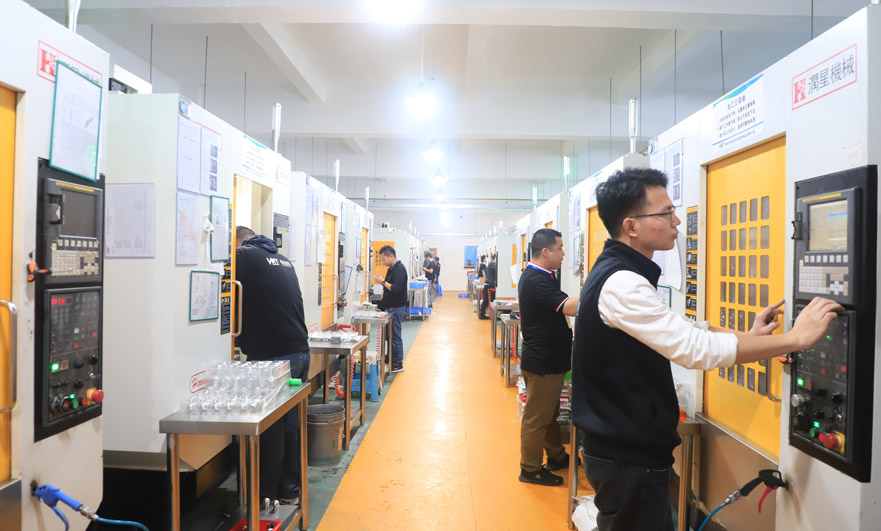
Operating temperature
Material heat resistance
When selecting a material, the melting point of the material must be below the operating temperature of the process. Additionally, consideration must be given to whether the operating temperature changes, and the material must withstand the temperature without warping, deforming, or breaking over time.
While some more durable materials are manufactured to withstand these changes, many will show signs of warping, swelling and/or cracking over time. Extreme temperatures can also adversely affect the durability of some materials.
For CNC machining materials, it is also important to know this information. This prevents the part from deforming due to the heat generated by cutting and forming the part. For successful design and fabrication, the relationship between the operating temperature and the materials used must be established.
Weight and Stress Capacity
The weight of the material being processed depends on how the CNC machined part will be used.
Heavier materials can absorb a lot of pressure. For projects requiring excessive loads and high stress loads, heavier materials should be considered. However, it is not suitable for weight-sensitive projects.
Lightweight materials are popular for weight-sensitive projects. They're durable, easy to use, and can absorb a lot of pressure, but they're more expensive. Lightweight materials are ideal for many products, but they may not be the best choice if cost is a key factor.
Choosing between heavy and light materials are just a few examples of the most important features of CNC machined parts. In this way, you can compare costs by specifying the key factors that make a part work and excluding materials that do not meet these criteria.
Overall Cost and Material Manufacturability
The most expensive materials are usually high strength and lightweight materials. When it comes to selecting materials for CNC machining, many factors can help you make a decision. To find the most compatible materials, prioritize the most important properties of the finished product. Choose materials that meet strength curves, temperature limits, and assembly requirements. Eliminate materials that do not meet these requirements, compare material costs, and select them.
Cost is an important consideration in choosing materials. Titanium alloys are light in weight, high in specific strength, and good in corrosion resistance. They are widely used in automotive engine systems and play an inestimable role in energy saving and consumption reduction. Although titanium alloy parts have such superior performance, the main reason that hinders the widespread application of titanium alloys in the automotive industry is the high cost. If you don't really need it, go for a cheaper material.
Typically, the more material used in a CNC part, the more expensive it will be. Likewise, the cost of exotic materials and very strong materials such as titanium is high.
CNC Machining Material Selection Guide
VMT offers hundreds of metals, alloys, plastic materials and other custom materials on demand. Therefore, below we discuss the most commonly used materials and their properties.
Metal Material
One of the most common types of materials in CNC milling is metal, and there are a variety of options. Let's take a look at the most well-known options and an overview of the applications that are best suited for each metal. Depending on the size and shape of the part, material costs can represent a significant portion of the total part price.
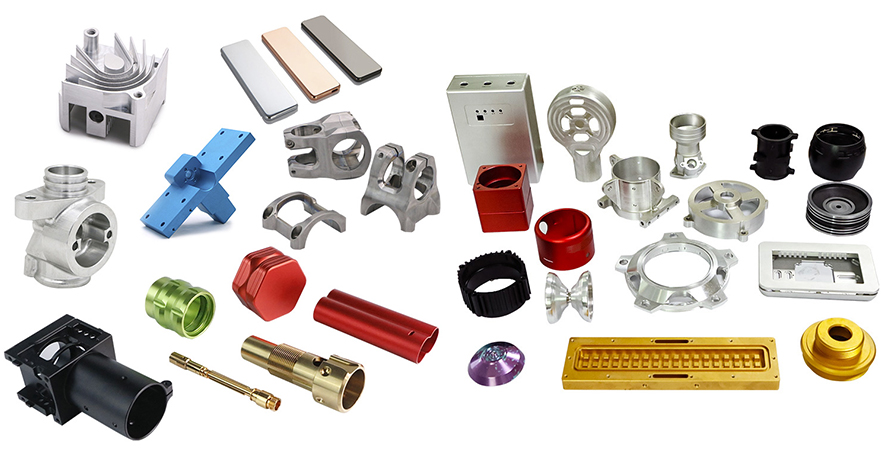
Aluminum
Aluminum is probably the most widely used material in CNC milling and is ideal for mechanical and exterior parts. Aluminum is usually processed faster than other metals and is therefore the most economical method. Aluminum components form a protective layer when exposed to the environment, increasing strength and corrosion resistance. Given these high-quality material properties, CNC milled aluminum is ideal for use in the automotive, aerospace, healthcare and consumer electronics industries. Specific applications include aircraft accessories, electronic enclosures, medical equipment, gears and shafts.
Aluminum 6061
It is the most commonly used general-purpose aluminum alloy and has a good strength-to-weight ratio and excellent machinability. It is the most common general-purpose aluminum grade and is commonly used in auto parts, bicycle frames, sports equipment, RC frames, etc.
The main alloying elements are magnesium, silicon and iron. Like other aluminum alloys, it has a high strength to weight ratio and is naturally resistant to atmospheric corrosion. One of the disadvantages of 6061 is its low corrosion resistance when exposed to salt water and other chemicals. It is not as strong as other aluminum alloys in more demanding applications.
Aluminum 6082 has the same composition and material properties as 6061. In Europe it is more commonly used because it conforms to the British Standard.
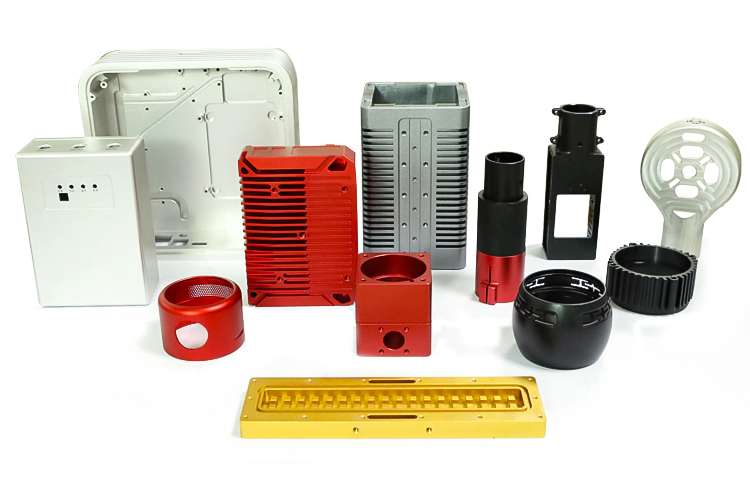
Aluminum 7075
Aluminum 7075 is one of the highest strength aluminum alloys. Unlike 6061, aluminum 7075 has high strength, easy processing, good wear resistance, strong corrosion resistance, and good oxidation resistance. It is the best choice for high-strength entertainment equipment, automobiles and aerospace frames. Ideal choice. Ideal for high strength recreational equipment, automotive and aerospace frames. For steel, aluminum 7075 has excellent fatigue properties, and due to heat treatment for high strength and high hardness, weight reduction is critical. However, if soldering is required, avoid soldering.
Aluminum 5083
Aluminum 5083 is stronger than most other aluminum alloys and has excellent resistance to seawater, so it is often used in construction and marine applications. It's also ideal for soldering.
Contact us today to learn more about CNC aluminum machined parts.
Stainless steel alloy has high strength, high ductility, good wear resistance, strong corrosion resistance and other properties, and is easy to weld, process and polish. Depending on their composition, they can be (in essence) non-magnetic or magnetic.
There are many types of stainless steel. It is called stainless steel because it contains chromium, which prevents oxidation (rust). As all stainless steels look the same, incoming raw materials must be carefully tested using the latest measuring equipment such as OES detectors to confirm the properties of the steel used.
Stainless Steel 303
For 303, sulfur is also added. This sulfur helps make 303 the easiest stainless steel to handle, but also tends to reduce corrosion resistance somewhat.
303 is not suitable for cold forming (bending) and cannot be heat treated. The presence of sulfur also means it is not suitable for welding. It has excellent machining properties, but care must be taken with cutting tool speed/feed and sharpness.
303 stainless steel has good machinability, burning resistance and corrosion resistance, and is used in occasions requiring easy cutting and high surface finish. Commonly used in stainless steel nuts and bolts, fittings, shafts and gears, threaded medical devices, pump and valve parts, etc. However, please do not apply to marine grade attachments.
Stainless Steel 304
It is the most common stainless steel alloy with excellent mechanical properties and excellent machinability. It can withstand most environmental conditions and aggressive media.
It is the most common form of stainless steel found in various consumer and industrial products. Commonly known as 18/8, it refers to the addition of 18% chromium and 8% nickel to the most common form of stainless steel.
304 is very hard, non-magnetic, easy to machine and generally corrosion resistant, making it ideal for kitchen fittings, storage tanks and piping for industry, construction and the automotive industry.
304 is easy to machine, but unlike 303, it can be welded. It is also more resistant to corrosion in most normal (non-chemical) environments. For machinists, very sharp cutting tools are used to ensure no contamination from other metals.
Stainless Steel 316
This is another common stainless steel alloy with the same mechanical properties as 304. It is generally considered marine grade stainless steel, strong and easy to weld. The material is very resistant to corrosion and salt solutions such as seawater are ideal for construction, marine fittings, industrial piping and automotive applications.
Stainless Steel 2205
Stainless Steel 2205 duplex stainless steel is the strongest stainless steel alloy (twice as strong as other common stainless steel alloys) and has excellent corrosion resistance. It is used in harsh environments and has many applications in the oil and gas industry.
17-4 Stainless Steel
The mechanical properties of 17-4 stainless steel (SAE 630 grade) are comparable to those of 304. Compared with tool steels, it has higher precipitation hardening and excellent chemical resistance, so it is suitable for high-performance applications such as turbine blade manufacturing.
Tool Steel
Tool steel is a metal alloy with extremely high hardness, stiffness, wear resistance and heat resistance. They are used to create manufacturing tools such as dies, stamps, and dies (hence the name). In order to achieve good mechanical properties, they must be heat treated.
Tungsten Carbide Milling Tool Steel D2 is a wear-resistant alloy that maintains its hardness at a temperature of 425°C. D2 steel is an air hardening, high carbon, high chromium tool steel with excellent wear resistance. Heat treatment is possible and there is a wide range of hardness. D2 steel is ideal for making parts or products that are easy to bend but need to be.
Tool Steel A2 is an air-curing general purpose tool steel with excellent toughness and dimensional stability at high temperatures. Usually used to make injection molds.
Tool steel O1 is a high hardness oil curing alloy with a hardness of 65HRC. Typically used for knives and cutting tools.
45 # Steel
High-quality carbon structural steel is the most commonly used medium carbon quenched and tempered steel. 45 steel has good comprehensive mechanical properties, low hardenability, and is prone to cracks during water quenching. It is mainly used to manufacture high-strength moving parts, such as turbine impellers and compressor pistons. Shafts, gears, racks, worms, etc.
40Cr Steel
40Cr steel is one of the most widely used steels in machinery manufacturing industry. It has good comprehensive mechanical properties, low temperature impact toughness and low notch sensitivity. After quenching and tempering, it is used to manufacture parts with medium speed and medium load; after quenching and tempering and high-frequency surface quenching, it is used to manufacture parts with high surface hardness and wear resistance; after quenching and tempering at medium temperature, it is used to manufacture heavy-duty, medium-speed parts Impact parts; after quenching and low-temperature tempering, it is used to manufacture heavy-duty, low-impact, and wear-resistant parts; after carbonitriding, it is used to manufacture transmission parts with larger dimensions and higher low-temperature impact toughness.
Low-Carbon Steel
Also known as low carbon steel, it has excellent mechanical properties, excellent machinability and excellent weldability. Due to the low cost, it can find general purpose applications such as manufacturing mechanical parts, jigs and fixtures. Mild steel is susceptible to corrosion and chemical attack.
Mild Steel 1018
Mild Steel 1018 is a general purpose alloy with excellent toughness, strength and hardness, as well as excellent machinability and weldability. Most commonly used low carbon steel alloy.
Carbon Steel 1045
This strong material is mild steel, not stainless steel, which is usually less expensive than stainless steel but stronger. The material can be hardened and heat treated to facilitate machining and welding. It is most commonly used in industrial and mechanical components that require high toughness and strength, such as nuts and bolts, gears, shafts and connecting rods. It is also used in construction, but is often surface treated to prevent rust when exposed to the environment.
Mild Steel A36
Mild steel A36 is a general purpose structural steel with excellent weldability. Suitable for a variety of industrial and architectural applications.
Magnesium AZ31
Magnesium AZ31 is an alloy of aluminum and zinc, which is 35% lighter than aluminum, but has higher strength. However, the material is often expensive and is commonly used in aircraft components. Easy to process, but flammable.
Magnesium is easy to handle but must be handled with liquid lubricants as it is very flammable, especially in powder form. Magnesium can be anodized for improved corrosion resistance. It is also a highly stable structural material, ideal for die casting.
Due to its light weight and high strength, it is commonly used around the house, including laptop cases, power tools, and camera bodies.
Titanium is known for its high strength, light weight, toughness and corrosion resistance. Soldering, passivation and anodizing can enhance protection and improve appearance. Titanium has a low polishing effect and low electrical conductivity, but conducts heat well. This is a difficult material to work with only specialist tools.
This material is usually more expensive than other metals. The crust is rich, but difficult to extract. It is most commonly used in military, aerospace, industrial and biomedical applications.
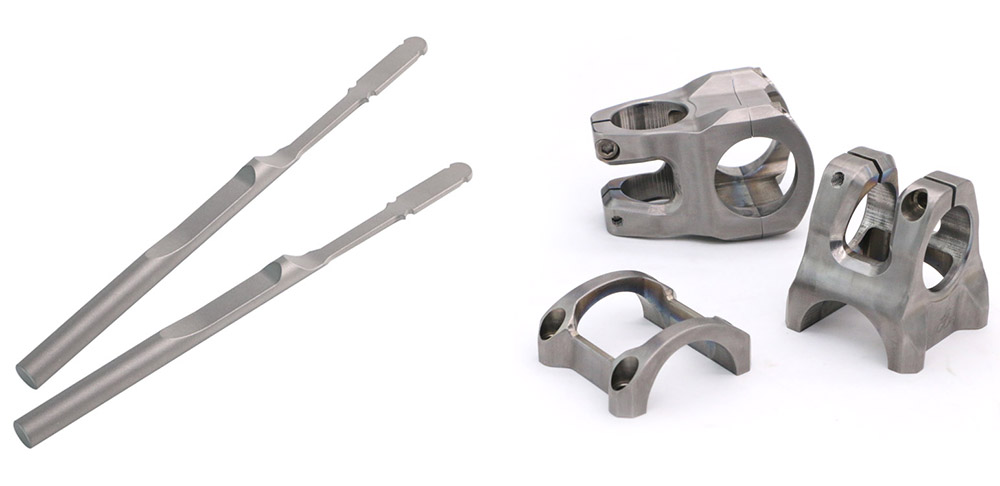
For CNC milling materials, few metals offer the conductivity of copper. High corrosion resistance helps the material resist rust and thermal conductivity helps the forming process during CNC machining. Common applications in the automotive industry include cooling systems and heat exchangers, as well as various engineering applications such as valves and radiators. However, it is important to know that copper is weak to certain chemicals such as acids, halogen sulfides and ammonia solutions.
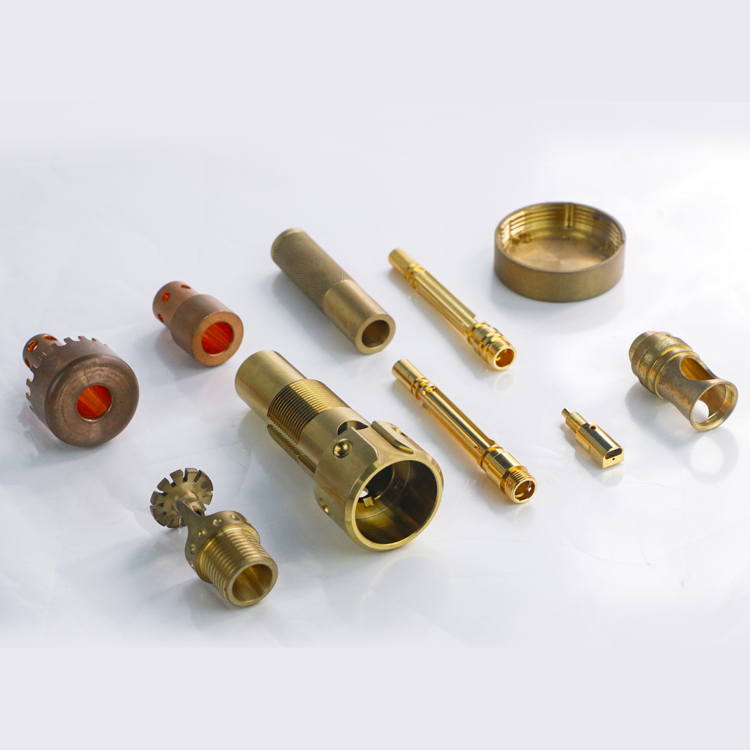
Brass
Brass Machining Parts Brass is recognized as one of the easiest and most cost-effective materials for CNC milling. Brass has the advantages of high strength, high hardness, chemical corrosion resistance, easy processing, etc., and has excellent electrical conductivity, thermal conductivity, ductility, and deep drawability. Applications include medical equipment, consumer products, electrical hardware and contacts. Brass has a low coefficient of friction and high corrosion resistance, so it is also used in engineering, piping, steam engineering and even instrumentation. It is used in plumbing fittings, upholstery and musical instruments due to its soft material and ease of processing.
Excellent processability and excellent electrical conductivity are ideal for applications requiring low friction. It is also commonly used in architecture to produce a golden look with an aesthetic appearance.
Brass C36000 is a material with high tensile strength and natural corrosion resistance. It is often used in a large number of applications because it is one of the simplest materials.
Copper
The electrical and thermal conductivity of pure copper (also known as copper) is second only to silver, and it is widely used in the production of electrical and thermal equipment. Copper has good corrosion resistance in the atmosphere, sea water and some non-oxidizing acids (hydrochloric acid, dilute sulfuric acid), alkali, salt solution and various organic acids (acetic acid, citric acid), and is often used in the chemical industry.
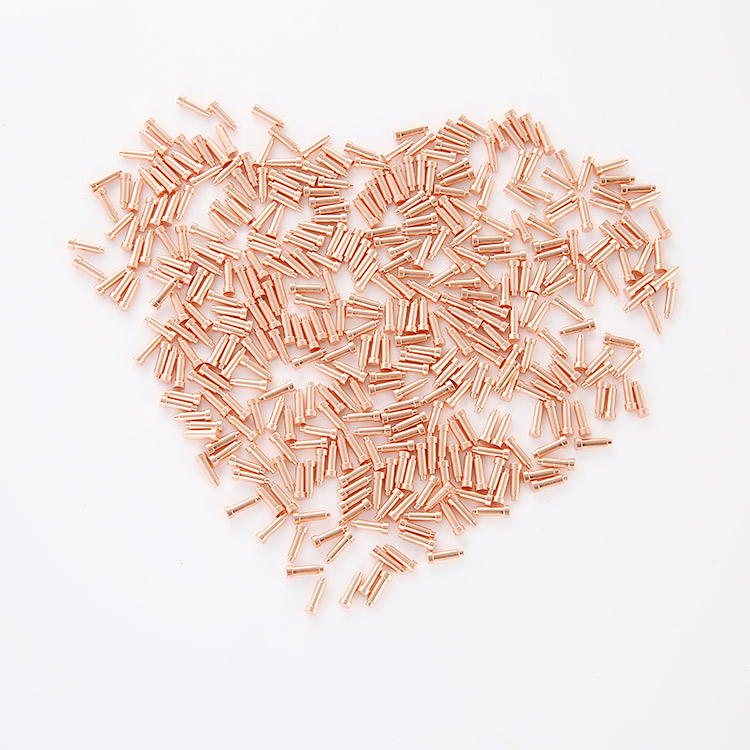
Plastic Material
In addition to metal materials, high-precision CNC machining services are also compatible with a variety of plastic materials. Here are some of the most widely used plastic materials for CNC machining:
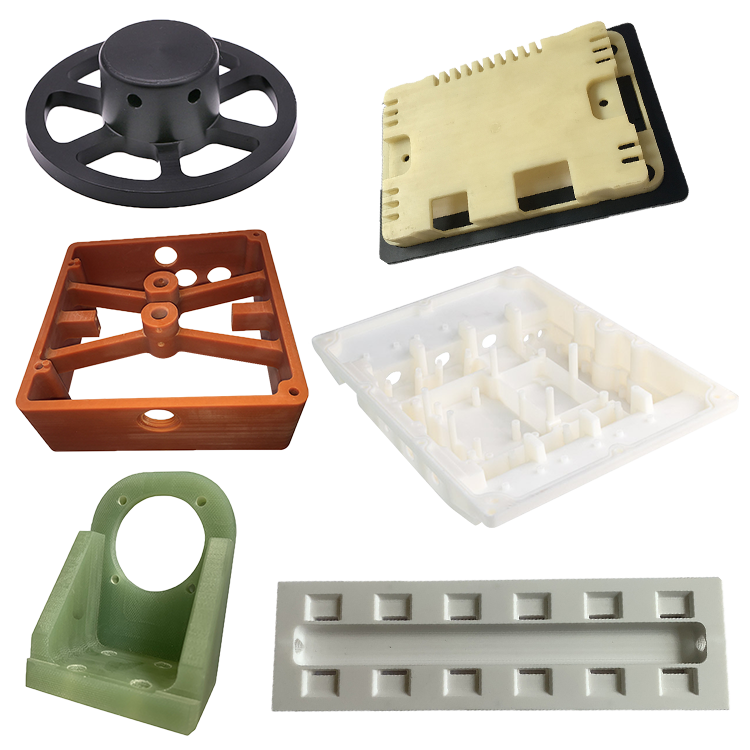
ABS
ABS is one of the most common thermoplastic materials, with excellent impact strength, good dimensional stability, good dyeability, molding processing and machining, high mechanical strength, high stiffness, low water absorption, good corrosion resistance, and simple connection , non-toxic and tasteless, has excellent chemical properties and electrical insulation properties; it can withstand heat without deformation, and it is also a hard, scratch-resistant, and non-deformable material.
The low density of ABS makes it ideal for light duty applications. ABS parts in CNC machining are often used as prototypes before injection molding for mass production.
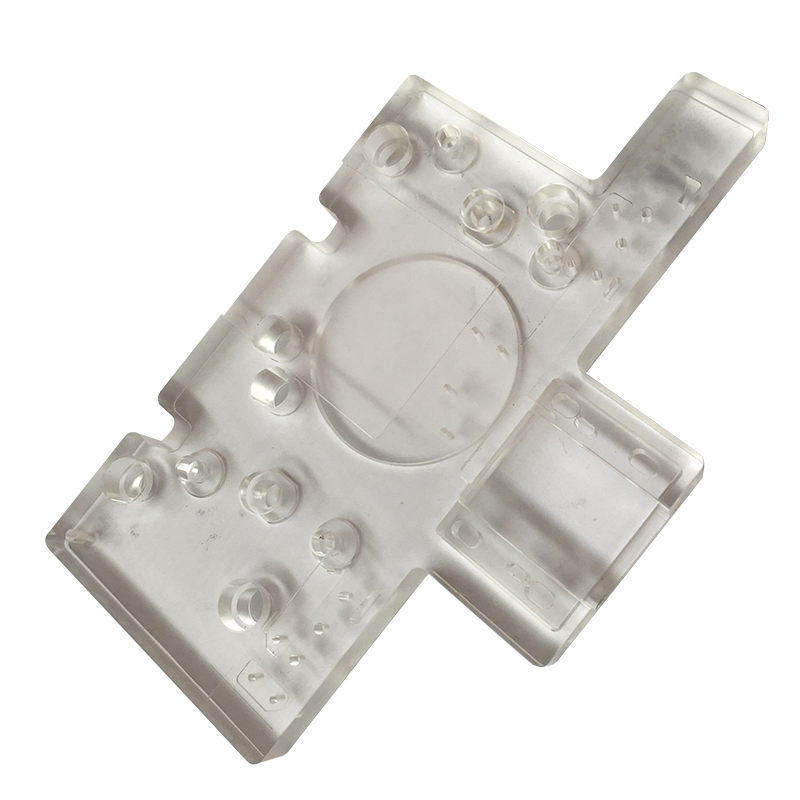
Nylon
Nylon, also known as polyamide (PA), is a thermoplastic. It has excellent mechanical properties, excellent impact resistance, high chemical resistance, wear resistance and medium flame retardancy, and is easy to process. It is a good material for plastics to replace metals such as steel, iron, and copper, so it is commonly used. Includes short run products for insulators, bearings and injection molding. The downside is that it absorbs water and moisture easily.
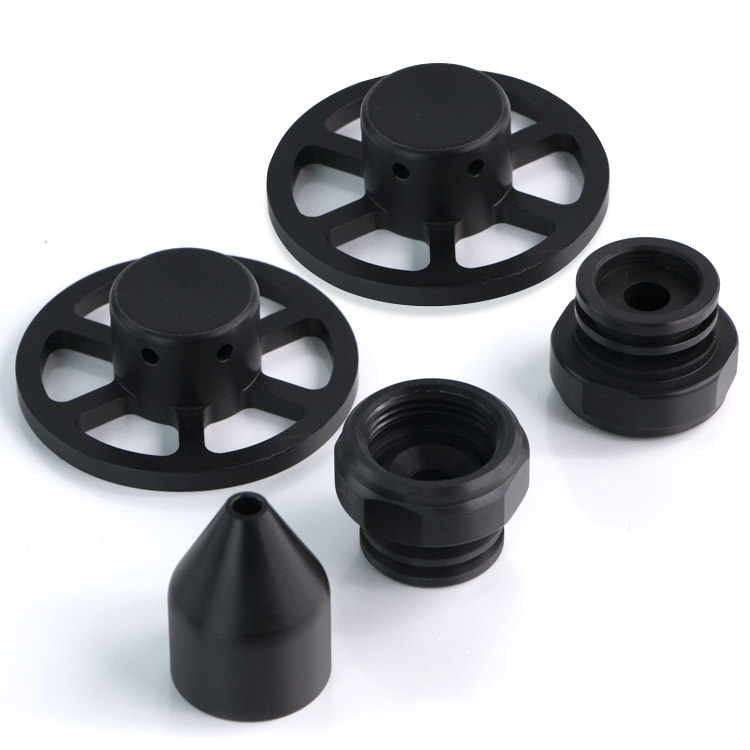
POM
POM is also known as Delrin. It is an engineering thermoplastic with the highest processability of plastics.
POM (Delrin) is generally well suited for CNC machining of plastic parts requiring high precision, high stiffness, low friction, excellent dimensional stability at high temperatures and very low water absorption.
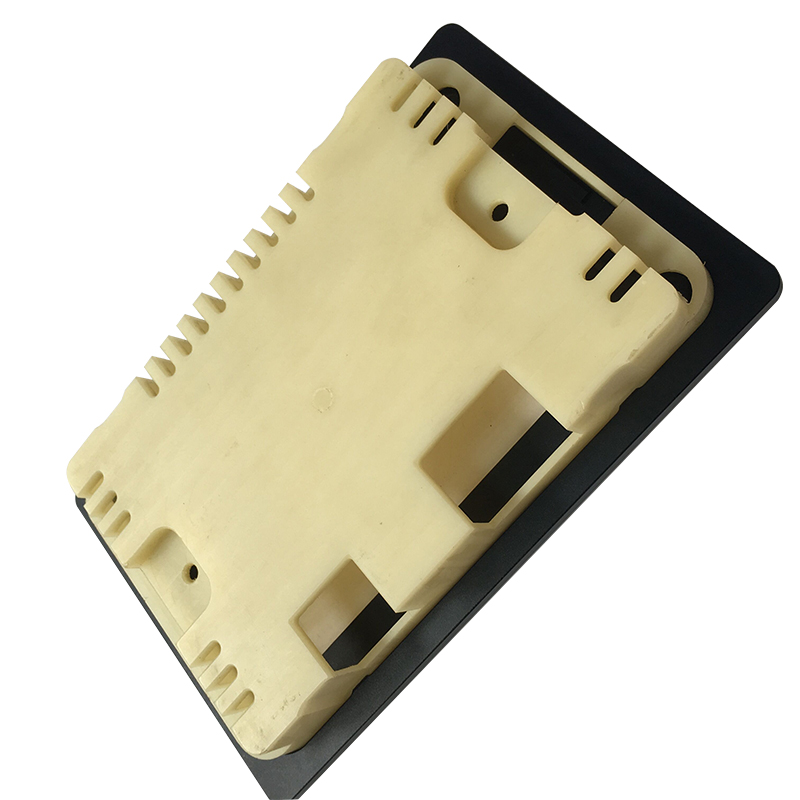
PTFE
PTFE, commonly known as polytetrafluoroethylene (polytetrafluoroethylene), is an engineering thermoplastic with excellent chemical and heat resistance and the lowest coefficient of friction of any known solid. Excellent electrical insulator. However, it has purely mechanical properties and is often used as a lining or insert for components.
HDPE
High-density polyethylene (HDPE) is a thermoplastic with a high strength-to-weight ratio, high impact strength and excellent weather resistance.
HDPE is a lightweight thermoplastic suitable for outdoor use and pipe transportation. Like ABS, it is often used to create prototypes prior to injection molding.
PEEK
PEEK is a high performance engineering thermoplastic with excellent mechanical properties, thermal stability over a wide temperature range and excellent resistance to most chemicals.
PEEK is often used to replace metal parts because of its high weight-to-weight ratio. PEEK is also available in medical grades for biomedical applications. It is often used to manufacture compressor valve plates, piston rings, seals, etc., and can also be processed into internal/external parts of aircraft and many parts of rocket engines. PEEK is the closest material to human bones and can replace metals to make human bones.
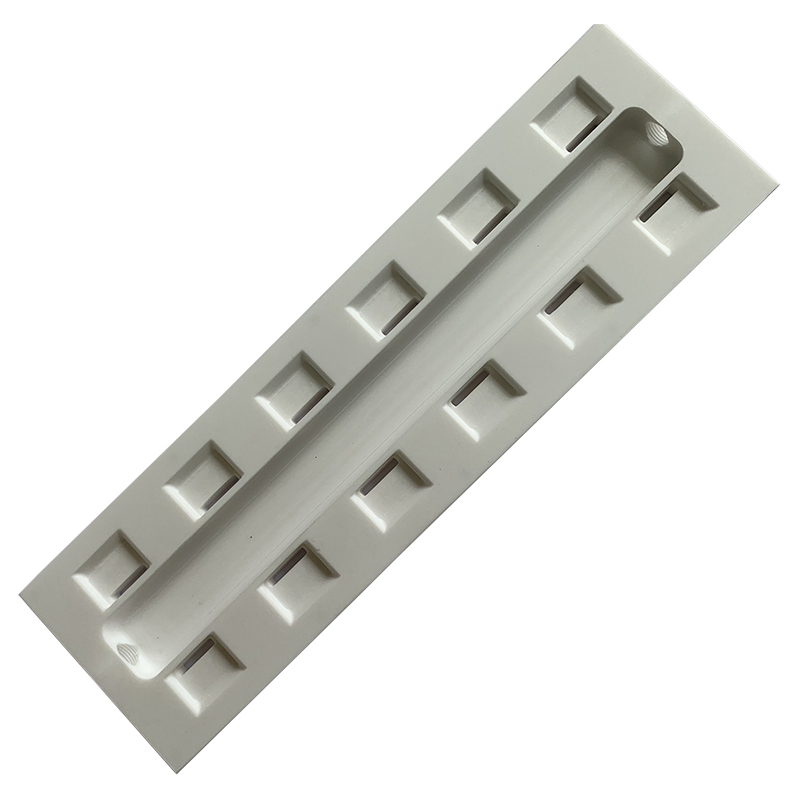
Contact VMT CNC Machining Services to Select the Right Material
VMT provides one-stop CNC machining services. Simple parts can be sampled and shipped within 24 hours, and complex parts can be sampled and delivered within 3 days. Free material library, with more than 50 kinds of metal and plastic materials, 10 CNC machining experts with 12 years of experience understand their characteristics and applications, to ensure the quality and delivery time of CNC machining parts.
Get to know us through website information, try VMT, send us a message, upload your CAD file, explain your CNC machining requirements, and you will receive our email or phone call within 24 hour. It is possible to conduct video chat and watch the factory online.
